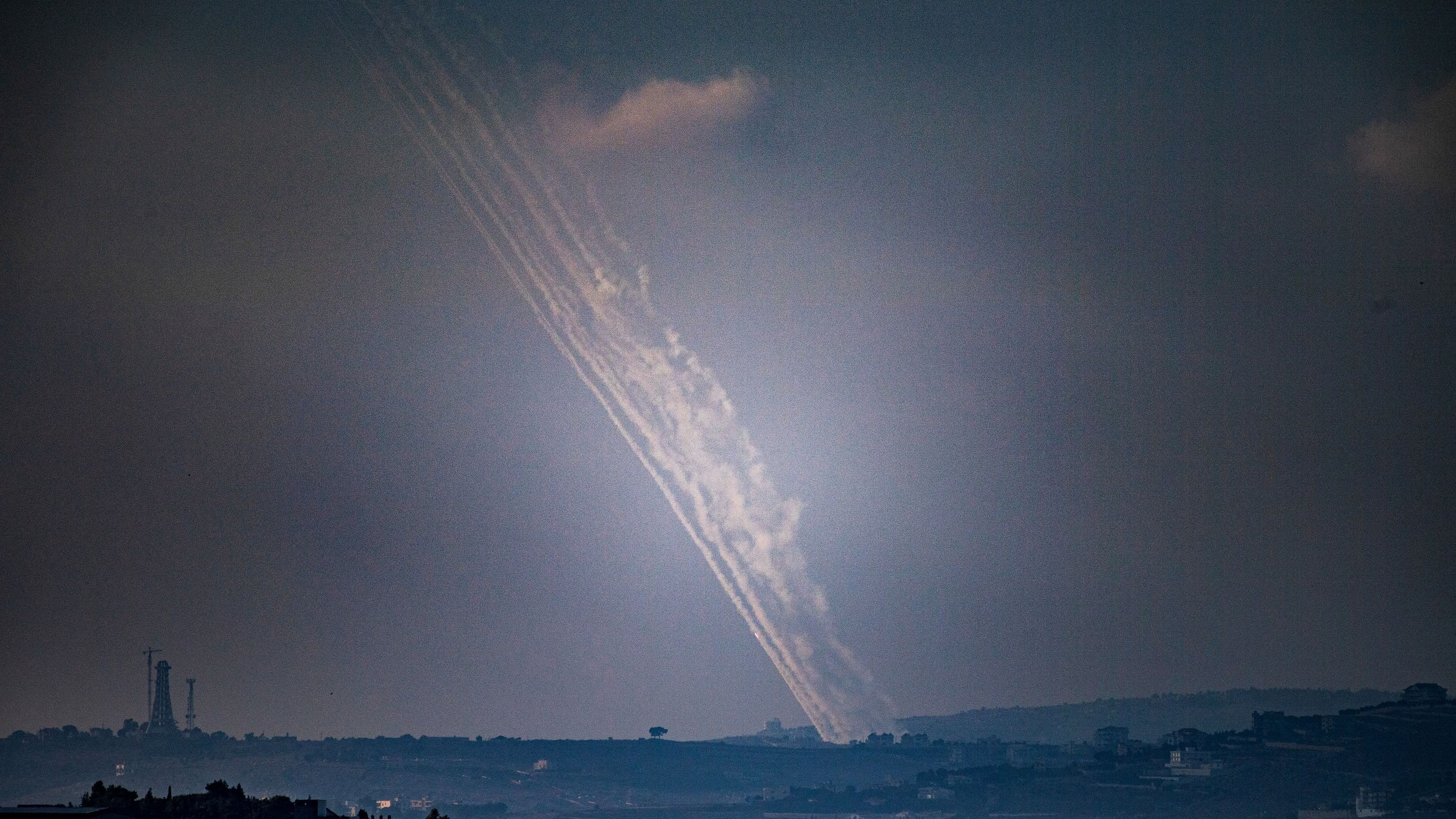
Rockets are launched from Lebanon towards Israel amid cross-border hostilities between Hezbollah and Israel as seen from northern Israel September 23, 2024.
Credit: Reuters photo
Jerusalem: Israel's deadly strikes and evacuation warnings in Lebanon on Monday showed its determination to break the resolve of Hezbollah and force the militia, which controls scores of villages across southern Lebanon, to stop its cross-border attacks on Israel.
The moves also reflected how far Israel is from achieving that goal -- and how close both sides are to an all-out war.
Israeli officials had hoped that by scaling up their attacks over the past week -- striking Hezbollah's communications tools, and killing several key commanders as well as Lebanese civilians -- they would unnerve the group and persuade it to withdraw from the Israel-Lebanon border. The officials believed that if they increased the cost of Hezbollah's campaign, it would be easier for foreign diplomats, like Amos Hochstein, a senior US envoy, to get the group to stand down.
For now, the opposite has happened. Despite days of escalatory attacks from Israel, Hezbollah has pledged not to buckle under the pressure.
The group's leaders have said they will continue their attacks until a cease-fire in the Gaza Strip is agreed to by Israel and Hamas, the militia's ally. And on Sunday morning, Hezbollah fired dozens of missiles at targets about 30 miles inside Israel, its deepest strikes since the start of the war in October -- which one of its top officials warned was "just the beginning."
Hassan Nasrallah, Hezbollah's leader, has even dared Israel to invade southern Lebanon, a move that could just as plausibly lead to a protracted stalemate as an Israeli victory.
An invasion did not appear to be imminent Monday, even as Israel intensified its strikes and warned civilians to evacuate villages where it said Hezbollah was storing weapons. Israel's chief military spokesperson, Rear Adm. Daniel Hagari, said the current focus was on an aerial campaign, not a ground operation.
But if Israel runs short of other forms of military pressure, an invasion would be one of the few military options left to the country's leadership.
The Israeli army, though, is already stretched thin -- still fighting in Gaza while also stepping up operations in the Israeli-occupied West Bank, where it mounts regular raids on Palestinian cities.
Military analysts have debated the feasibility of Israel's attempting to fight three land conflicts at once, especially given the challenges posed by an invasion of Lebanon.
After 11 months of fighting, Israel's military still has not fully defeated Hamas in Gaza. And Hezbollah controls a larger and more mountainous area than Hamas does in Gaza. The Lebanese militia also is generally considered to have a better trained army than Hamas has, in addition to more sophisticated fortifications.
To invade Lebanon, the Israeli military would most likely need to call up thousands of reservists -- many of whom are already fatigued from serving in Gaza during the past year.